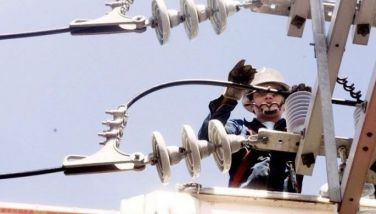New, better way of doing things

There are things in life that you can just let go of and do away with.
But there are those that have already become good enough to keep because the advantages far outweigh the disadvantages.
Take the case of online banking and automated teller machines (ATMs).
We were actually doing fine going to the brick-and-mortar branch of a bank to deposit and withdraw money or encash a check. With a passbook savings account, the risk of someone else using your account without your permission is negligible, if not nil. Until we discovered online banking and ATMs.
I have a passbook savings account. But I have not updated my passbook in years. This is because I can easily track my transactions and balance via my mobile banking app. Using the app I can transfer money to any account, albeit with charges. I can pay my utility bills electronically which I used to do physically by going to the bank or a Bayad Center.
We are fast becoming a cashless society. And this is not limited to those with bank accounts. Using GCash and PayMaya and other electronic payment means, one can book cleaning services or have groceries delivered without having money on hand.
But there are disadvantages. It is impossible to stop payment or reverse charges once done via GCash or PayMaya. If you key in one wrong number of the intended recipient, then that’s goodbye to your money.
Then of course our mobile and online banking apps and our ATMs can easily fall prey to hacking and tampering just like credit cards. Hacking is real and difficult if not impossible to prevent.
We are however willing to assume the risk for the sake of benefitting from their many advantages.
******
When was the last time you went to a department store to buy things that you need or even gift items.
Almost everything is now on Lazada, Shopee, Zalora and Amazon. I can go to different stores, compare prices, get discounts, even free delivery via online merchants selling in these platforms.
But I have to admit that I miss shopping physically. It is always better to try on dresses and shoes before you buy to make sure that they fit and look good.
A dress may look good on the screen, especially if worn by a model. When you receive the item, most of the time, the item’s description does not match. Worse, it does not fit you. Some online stores allow a return and exchange, but some do not.
There are small items that I have ordered online which turn out to be totally useless and not working. But since they came all the way from China, it is not possible to have them replaced.
But then again, the advantages far outweigh the disadvantages.
*****
Recently, there have been a call from certain groups to go back to manual elections.
We have experienced automated elections several times in the past and hands down, it is much better than casting our votes manually.
Since 2010, we’ve witnessed relatively less violent elections, and the electoral results have been largely unassailable (except of course for obligatory protests from losing camps). Results come in very quick unlike before when we had to wait for months before we know who won.
The Commission on Elections is enjoying its highest trust rating in its entire history. While the poll body once had a dismal trust rating of 40 percent during the darkest days of the manual elections, its credibility and satisfaction rating shot up to a historic high of 74 percent immediately after the successful automated elections of 2010.
In a 2019 Pulse Asia survey, it was revealed that 84 percent of voters trusted the election results, 94 percent said the vote counting machines were easy to use, and 91 percent want automated voting in future elections, all testament to how much automation has restored the Filipinos’ trust in the exercise and in Comelec as well.
In 2010, there were 176 cases of violence reported, a big improvement over the countless bloody cases that perennially plagued manual elections. In 2016 the Philippine National Police reported 106 cases while in 2019, the PNP reported 43 cases of election-related violence.
Even the Department of Education has reported fewer incidents of violence against teachers who serve as poll workers since we have adopted AES.
The economy has also benefitted from peaceful elections through AES. After the 2010 elections, the Philippine Stock Exchange index (PSEi) posted a 3.85 percent gain while the Philippine peso rose by one percent against the dollar. Shortly after the 2016 elections, the PSEi climbed 221 points or 3.09 percent to close at 7,369.52. It would eventually surpass the 7,500 mark, buoyed by the euphoria from the peaceful elections.
Since we adopted the AES, the number of protest cases have actually declining. Where there were thousands of protests filed under manual elections in the past, there were only 49 cases filed in 2010, 37 in 2013, and 28 in 2016 and just 20 in 2019.
According to one report, the AES is auditable and provides both paper and digital votes, and reports are tallied to confirm the accuracy of the votes and outcomes. The Philippine Statistics Authority held random manual audits from the 2019 automated elections and it found an astounding 99.9953 percent match between automated count and manual returns. In fact, since 2010, AES has been this consistently accurate, not falling lower than 99 percent accuracy.
Yes, the AES is not 100 percent fool-proof. But then again, the voters are willing to take on this risk because of the advantages of an automated system.
Those trying to discredit it, even those calling for a return to manual voting and counting, must consider what is better for everyone, not just for a few.
For comments, e-mail at [email protected]
- Latest
- Trending






























